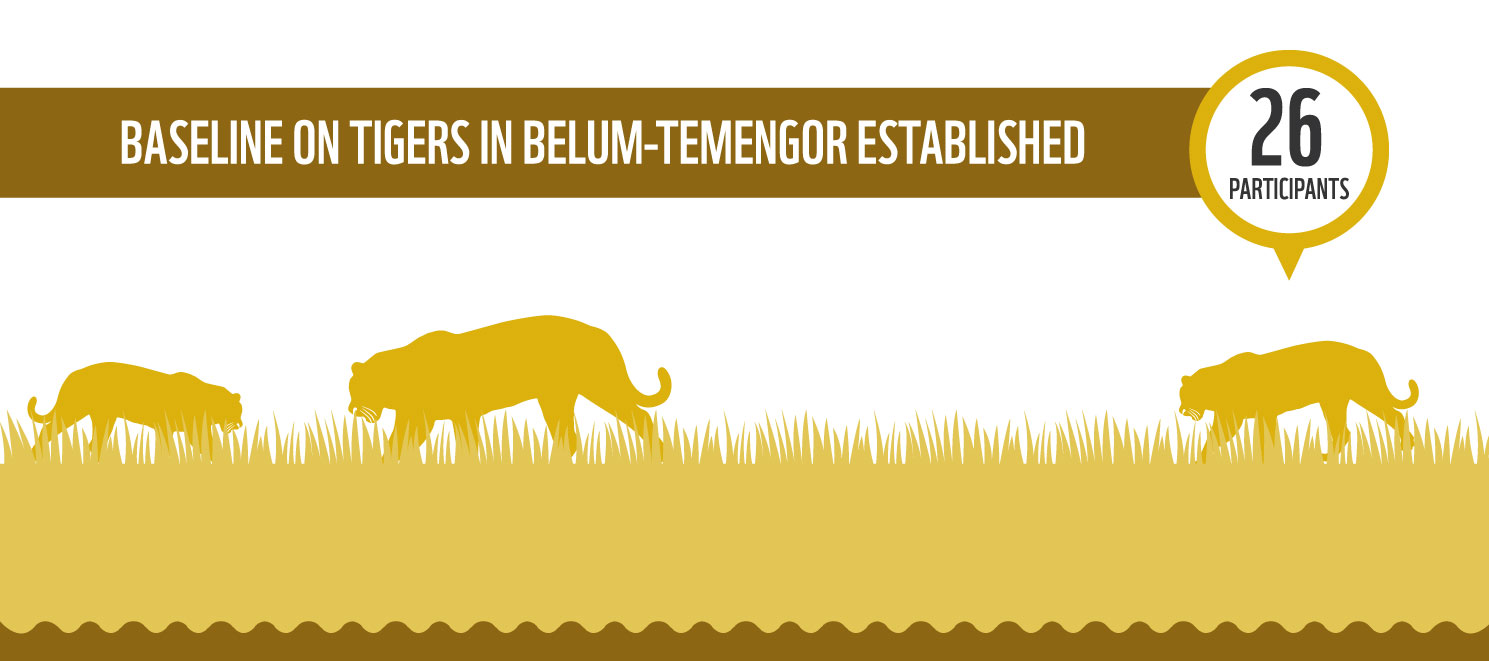
A ground-breaking technical report entitled “Conservation status of tigers and their prey in the Belum-Temengor Forest Complex” was produced. It provides much-needed baseline for the area that has been identified as a priority site under the National Tiger Conservation Action Plan. The report was socialized through a workshop attended by 26 participants including key government agencies. Through this workshop, we were able to create an engaging platform that facilitates the adoption of our science-based management recommendations to aid the authorities in protecting the area for the long-term survival of wildlife.
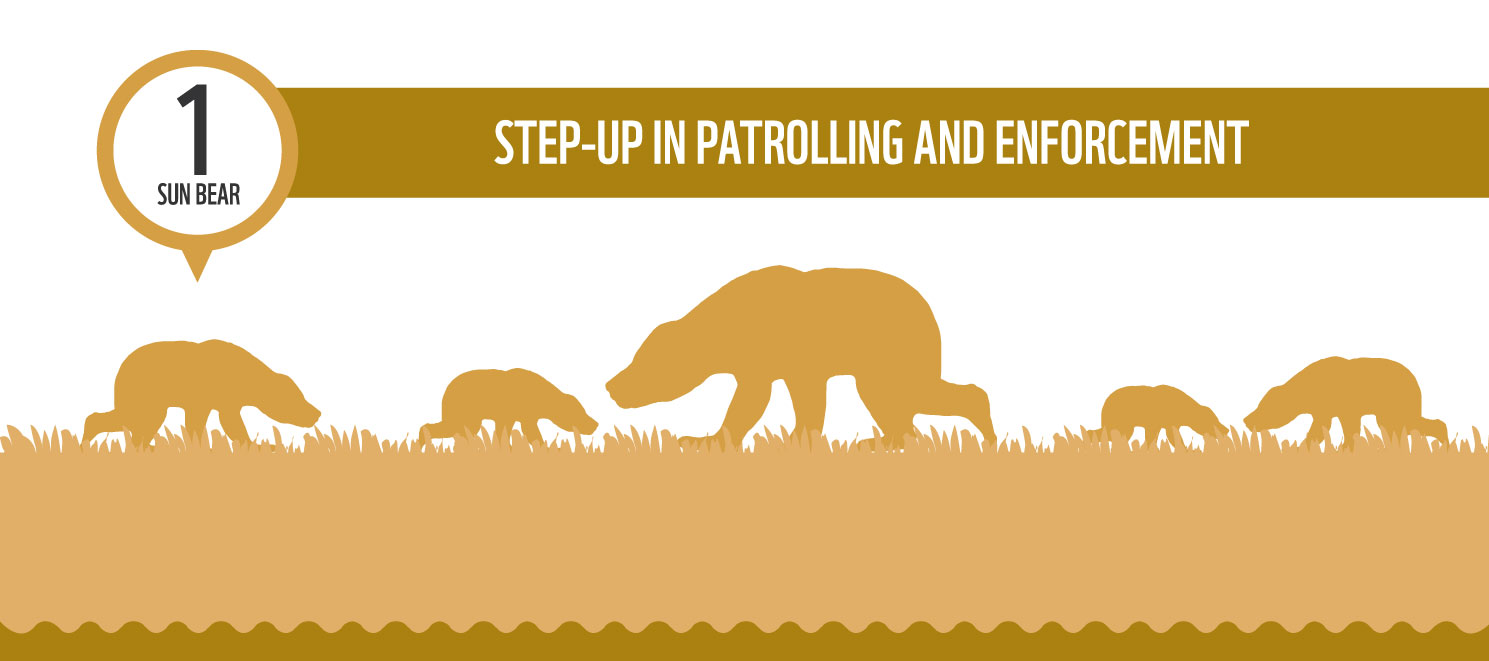
A step-up in patrolling and intelligence by WWF-Malaysia with the support of the Orang Asli community led to the rescue of a snared sun bear, with the help of the Department of Wildlife and National Parks. Several other snares were also discovered nearby in a joint operation, which could have potentially caused the demise of other wildlife. Close collaboration and sharing of information with the relevant government agencies continues to result in more effective enforcement efforts being applied within the Belum-Temengor Forest Complex.
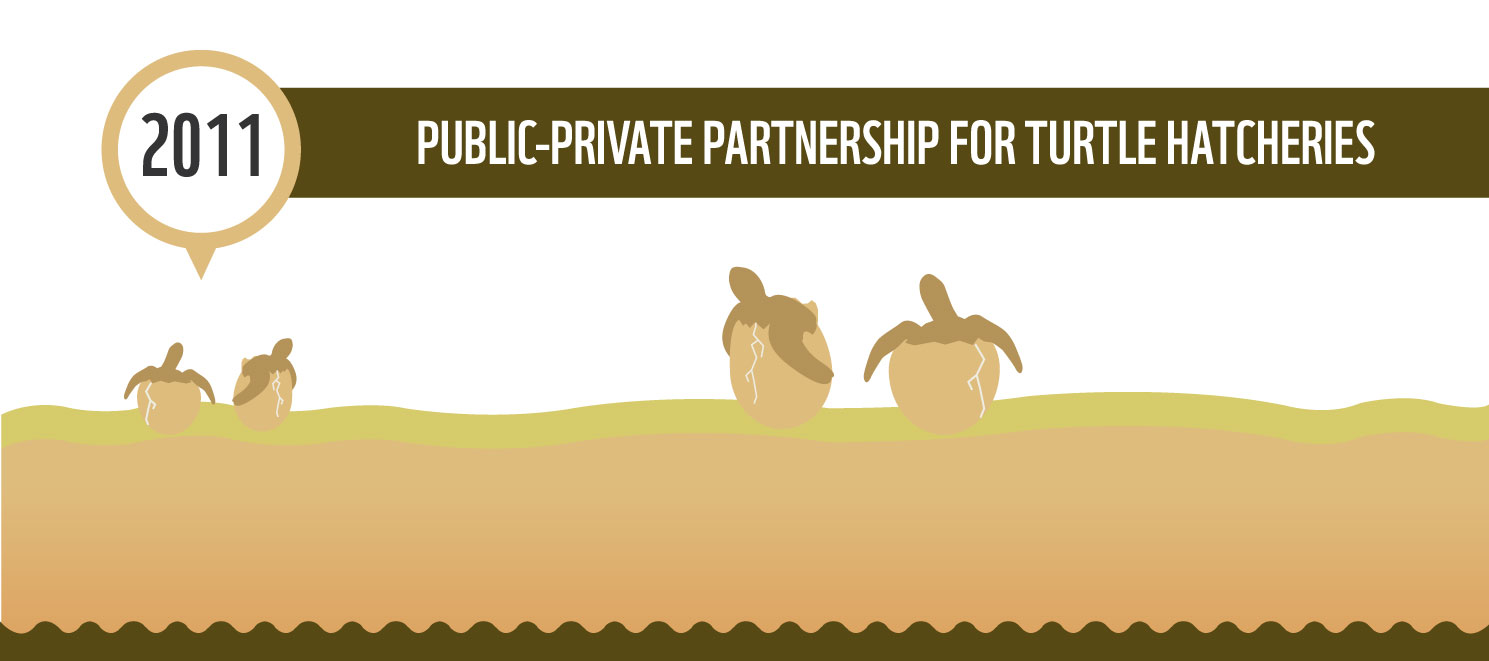
Since 2011, WWF-Malaysia facilitated the process of signing a Memorandum of Understanding (MoU) between Sabah Wildlife Department, Pom-Pom Island Resort and The Reef Dive Resort Mataking on turtle hatcheries at Semporna Priority Conservation Areas (PCA). The MoU is an example of public-private partnership that helps turtle conservation through egg protection. Hatcheries ensure safe incubation and increase the numbers of hatchlings released to sea. Without hatcheries, Green and Hawksbill turtle eggs are threatened by human poaching and natural predators.
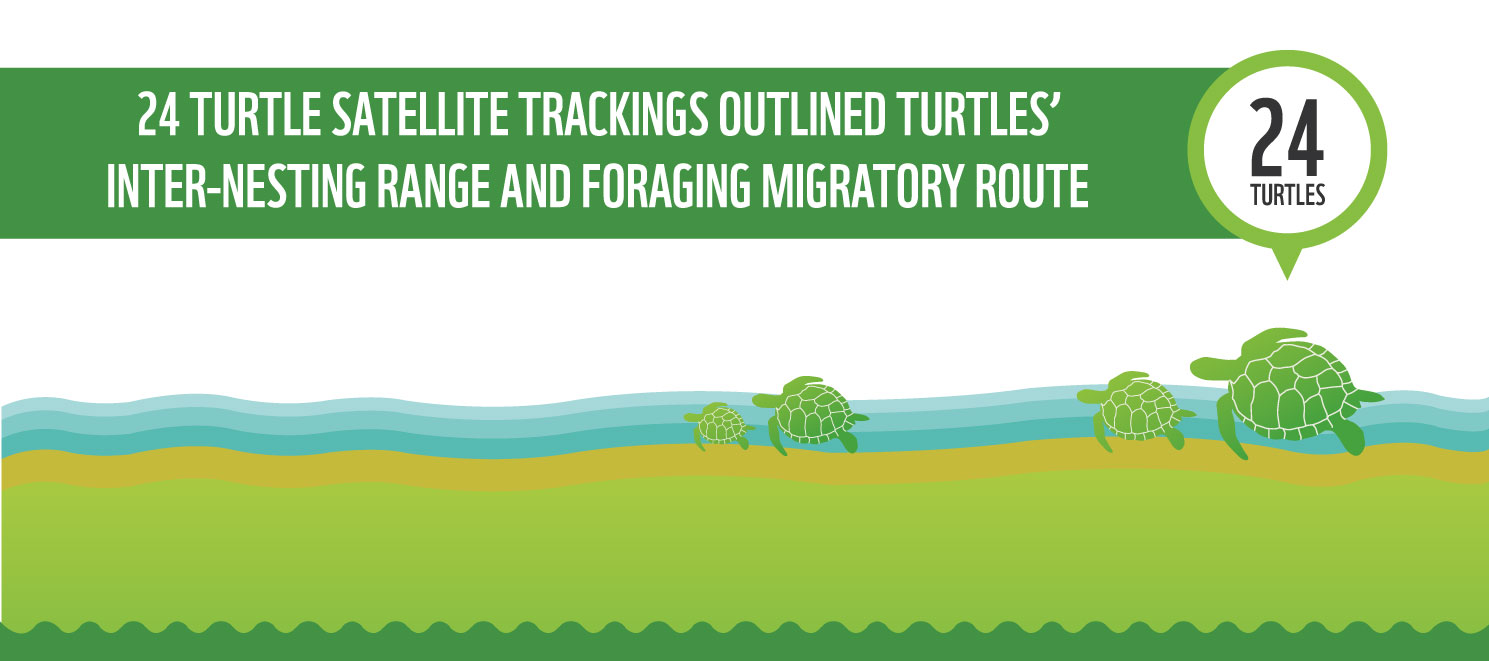
Analysis of tracking data from 24 green turtles fitted with satellite transmitters since 2008 clearly demarcated the inter-nesting range off Setiu and Kerteh. Post nesting, turtles found to either migrate eastwards towards Sabah and Philippine waters or towards the Riau Islands off Sumatra. The results will be shared with The Coral Triangle Global Priority Place Programme which will contribute towards the mapping of the Coral Triangle-wide system of marine protected areas (MPAs).
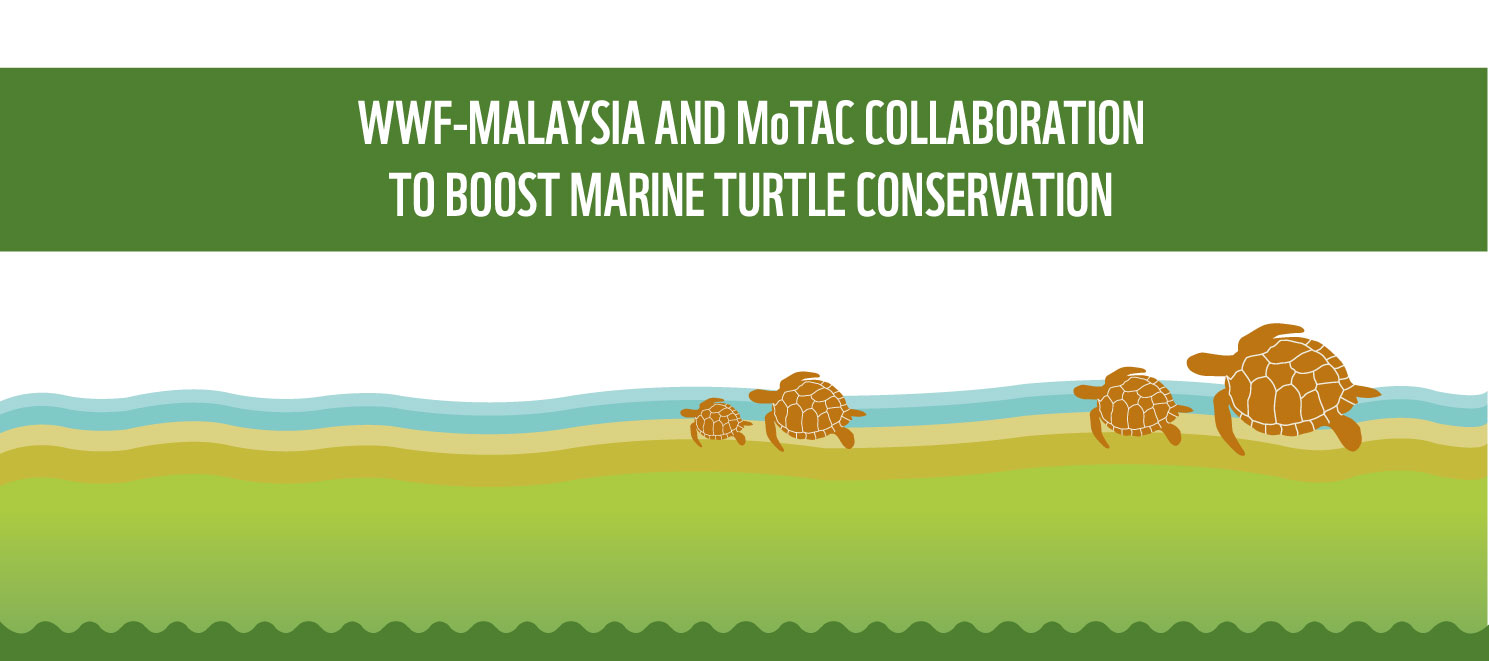
WWF-Malaysia and the Ministry of Tourism and Culture (MoTAC) signed a Memorandum of Understanding (MoU) to mark their collaboration in marine turtle conservation that includes educational and awareness activities as well as ecotourism programmes. The MoU will enable more members of the public to learn about turtle conservation issues and empower local communities to engage in turtle conservation work and environmental stewardship. This is an important step towards advocating with the Federal Government to protect turtles in a holistic manner.
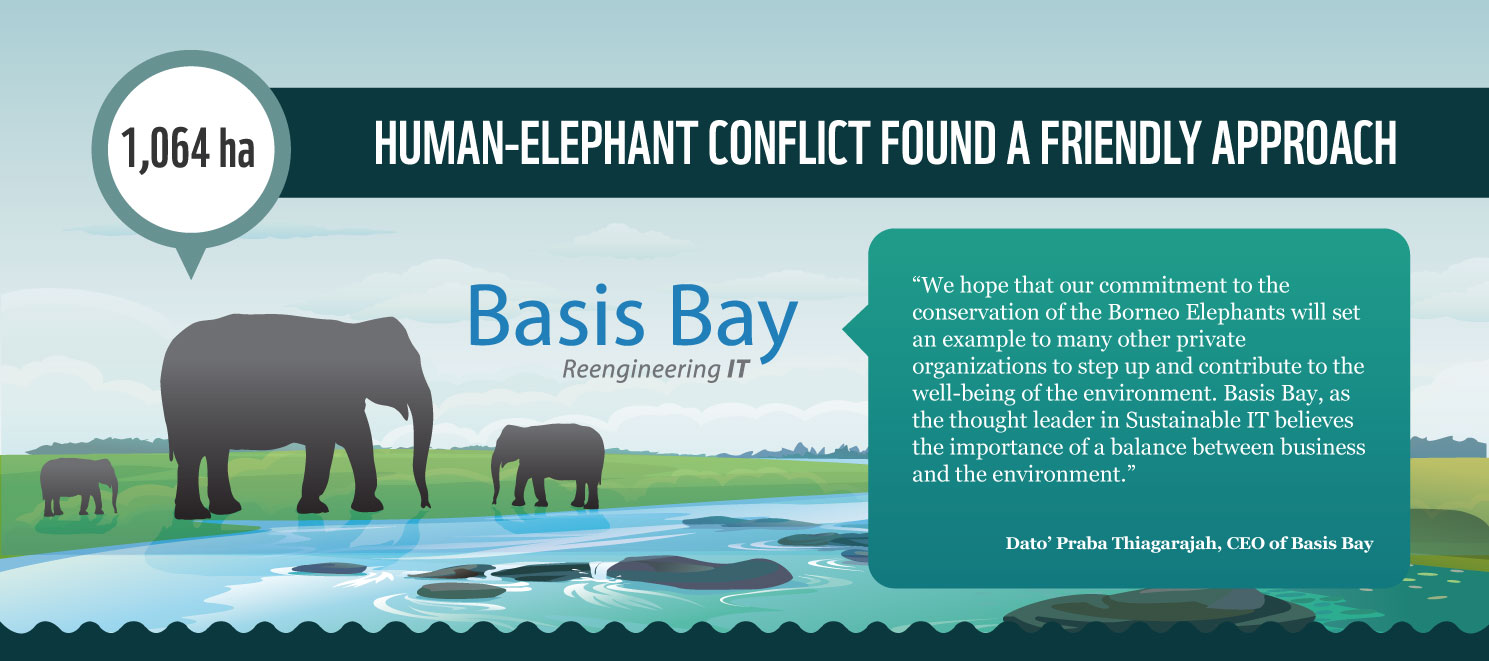
From the option of translocating elephant herds out of its estate, Sabah Softwoods Sdn. Bhd. has turned around and agreed to opt for a more conservation friendly approach. The plantation has favoured research on elephant movements to identify long-term solutions to conflict through land use planning, and set aside 1,064 ha of plantation land for forest connectivity. This became possible through WWF-Malaysia; Sabah Terrestrial Conservation Programme’s constant engagement over the past two years on responsible palm oil and forestry channels (the plantation is FSC-certified and Sabah Softwoods is a RSPO member).
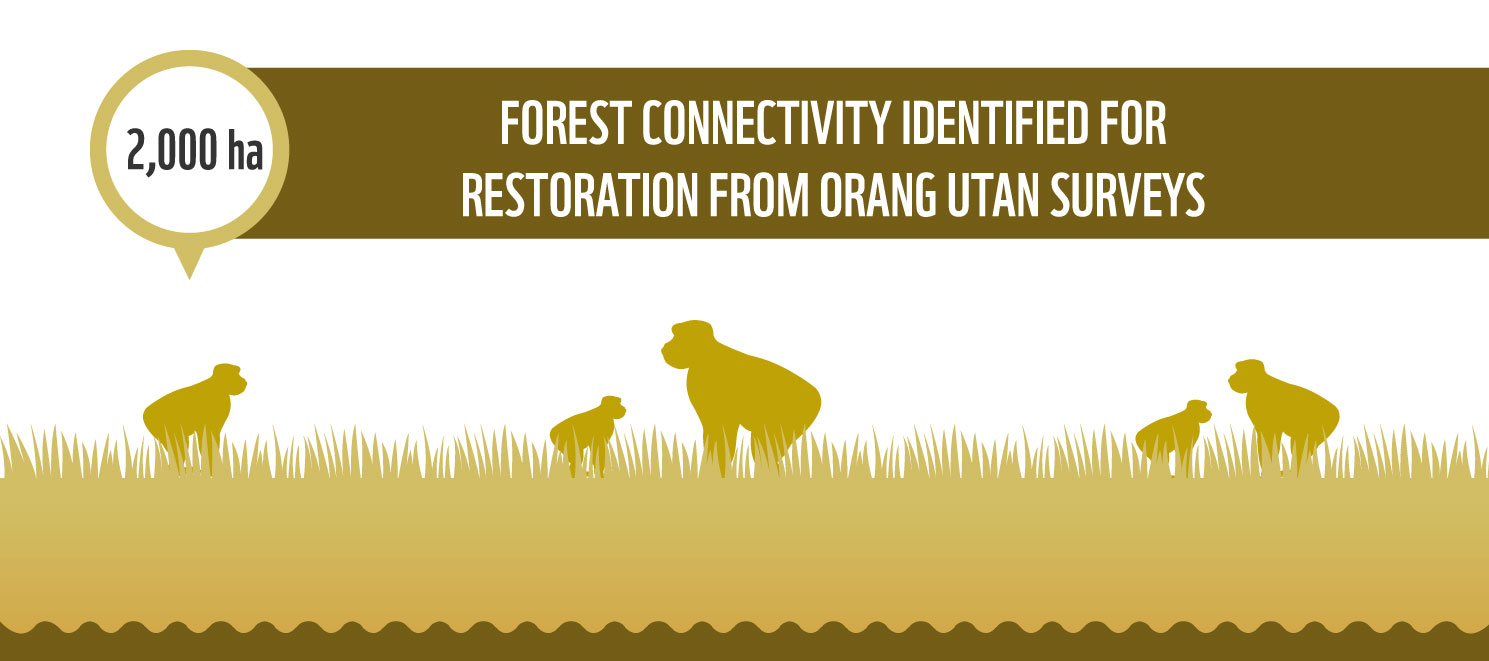
Sabah Terrestrial Conservation Programme’s orangutan surveys from air and ground, habitat assessment and mapping for identifying critical areas for forest restoration have resulted in a proposal for restoration of connectivity to a 2,000 ha isolated forest fragment, Madai Baturong from adjoining Ulu Kalumpang protection forest reserve. This restoration effort is expected to result in restoration of about 150 ha of oil palm land back to forest cover and thus an expansion of habitat for orangutan and other terrestrial species by 2,000 ha.